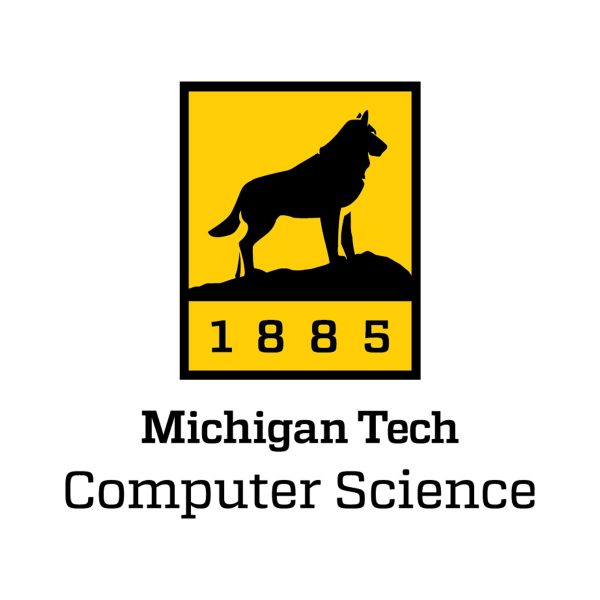
Department of Computer Science faculty and students presented two posters, a paper, and chaired a session at the 26th Annual Conference on Innovation and Technology in Computer Science Education (ITiCSE), conducted online June 26 to July 1, 2021.
“A Visualization for Teaching Integer Coercion,” a poster presented by James Walker with Steven Carr, Ahmed Radwan, Yu-Hsiang Hu, Yu Chin Cheng, Jean Mayo, and Ching-Kuang Shene, was one of three posters that received the conference’s Best Poster Award.
The poster describes the Expression Evaluation (EE) visualization tool. The tool is designed to aid students in understanding type conversions that take place implicitly in C. Understanding type conversions is essential to avoid Integer errors in C which continue to be a source of security vulnerabilities.
An additional paper and poster were presented at the conference, below. Dr. Linda Ott chaired a conference session on Students: Diversity.
Poster: Modeling the Growth and Spread of Infectious Diseases to Teach Computational Thinking by Meara Pellar-Kosbar, Dylan Gaines, Lauren Monroe, Alec Rospierski, Alexander Martin, Ben Vigna, Devin Stewart, Jared Perttunen, Calvin Voss, Robert Pastel and Leo Ureel II
The poster discusses a simulation model developed to teach middle school students about the spread of infectious diseases augmented with affordances to help students develop computational thinking skills. The simulation was partially developed as a Citizen Science project in the courses CS4760 and CS5760, User Interface Design and Human Computer Interaction.
Presentation: Frozen in the Past: When it Comes to Analogy Fears, It’s Time For Us to “Let it Go” by Briana Bettin and Linda Ott
This position paper describes a fundamental difference in attitudes toward the use of analogy in the computer science education community versus other STEM education communities. Additionally, it provides suggestions for how to address concerns in the CS education research community in order to advance research into the use of analogy in computing education
The 26th annual conference on Innovation and Technology in Computer Science Education (ITiCSE) was sponsored by ACM, the ACM Special Interest Group on Computing Education (SIGCSE), the ACM Europe Council, and Informatics Europe.

The 2020-2021 CTL Instructional Award for Innovative or Out of Class Teaching is being presented to two instructors, and Assistant Professor Leo Ureel, Computer Science, and Libby Meyer, senior lecturer, Visual and Performing Arts.
Ureel was nominated in recognition of his “student-centric efforts which have increased retention and diversified the cohort of first-year computing students.”
Ureel’s presentation, “Three course innovations to support communication,” will be presented at 3:30 p.m. on Thursday, February 18, 2021, as part of the CTL Instructional Award Presentation Series.
Link here to register for the event.
Ureel is a member of the Institute of Computing and Cybersystems’s (ICC) Computing Education Center.
Meyer’s presentation, “Beyond Carrots and Sticks: Mastery Based Grading and Narrative Assessment” will also be presented on February 18.
During spring 2017, academic deans were asked to begin recognizing instructors making contributions in these areas as part of the Deans’ Teaching Showcase, effectively nominating them for instructional awards.
CTL and Provost’s office members along with previous awardees then select one individual in each category from a pool composed of the Showcase and those nominated to the Academy of Teaching Excellence.
Ureel Lecture Abstract
Three course innovations to support communication Introductory courses present many communication challenges between faculty and first year students. In this context, we discuss three innovations used in our introductory computer science courses.
The first is the use of Snap, a high-level, visual programming language, as a form of pseudocode during the first five weeks of the course to build student vocabulary and problem solving skills before tackling programming in Java.
The second is a Code Critiquer developed as a Canvas plugin to provide immediate guidance and feedback to students when they submit their programming assignments.
The third is a grade visualization tool that helps students understand their current performance in the course and project a range that will contain their final grade. While not everyone teaches introductory computer science, we discuss how these or similar innovations and tools might apply to your course.
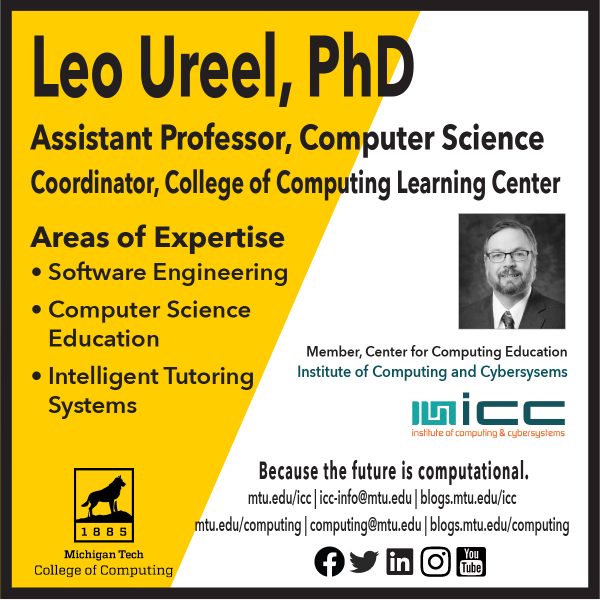
by Michael R. Meyer, Director, William G. Jackson CTL

Assistant Professor Leo Ureel, Computer Science, is among the Deans’ Teaching Showcase members who have been selected to receive 2020 CTL instructional Awards.
The awardees will make presentations next spring semester to share the work that led to their nomination.
When their presentation concludes, each will be formally recognized with a certificate and $750 in additional compensation .
Tuesday, Jan. 26, 2021 — Curriculum Development: Katrina Black, Senior Lecturer in Physics
Thursday Feb. 18, 2021 — Innovative or Out of Class Teaching: Libby Meyer, Lecturer in Visual and Performing Arts and Leo Ureel, Assistant Professor in Computer Science
Tuesday, March 30, 2021 — Large Class Teaching: Kette Thomas, Associate Professor of Diverse Literature in Humanities
These events will take place from 3:30-4:30 on the dates listed. Detailed titles, topics, and registration links for each presentation will be circulated in anticipation of each event.
Many thanks to the previous CTL instructional award recipients and the Provost’s office staff who were instrumental in the selection process.
Please consider suggesting instructors whom you’ve seen make exceptional contributions in Curriculum Development, Assessment, Innovative or Out-of-Class teaching or Large Class Teaching to the appropriate chair or dean so that they can be considered for the upcoming (2021) Deans’ Teaching Showcase during spring semester.
The Michigan Tech College of Computing welcomed six new faculty members this fall to the Departments of Applied Computing and Computer Science.
College off Computing Dean Adrienne Minerick says the new hires reflect the fast growth of the new College, which was launched July 1, 2019.
“We are thrilled to welcome these six talented new faculty members,” Minerick says. “Even amid the challenges we are all facing, our proactive recruitment and retention activities are making a difference.”
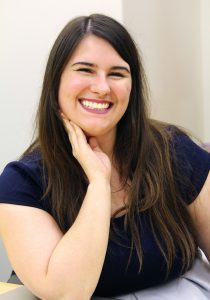
Assistant Professor Briana Bettin, Computer Science, has a Ph.D. in computer science from Michigan Tech. She is also an affiliated assistant professor for the Cognitive and Learning Sciences department. Bettin’s research interests include user experience; human factors; human-computer interactions; mental models; information representation; rural digital literacy; education, engagement, and retention; and digital anthropology. Bettin is a member of the ICC’s Computing Education Center.
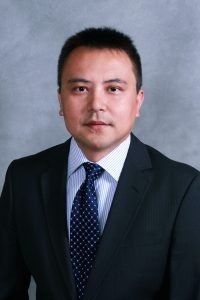
Assistant Professor Sidike Paheding, Applied Computing, has a Ph.D. in electrical engineering from University of Dayton, Ohio. Prior to joining Michigan Tech Paheding was a visiting assistant professor at Purdue University Northwest. His research interests include image/video processing, machine learning, deep learning, computer vision, and remote sensing. Paheding is a member of the ICC’s Center for Data Sciences.
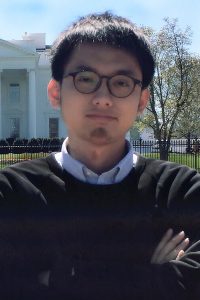
Assistant Professor Junqiao Qiu, Computer Science, has a Ph.D. in computer science and engineering from University of California Riverside. His research focuses on parallel computing, programming systems, and compiler optimization. Qiu is a member of the ICC’s Center for Scalable Architectures and Systems.
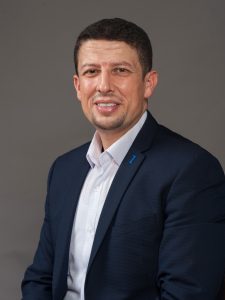
Assistant Professor Ashraf Saleem, Applied Computing, has a Ph.D. in mechatronics engineering from DeMontfort University, UK. He comes to Michigan Tech from the electrical and computer engineering department at Sultan Qaboos University, where he served the mechatronics engineering program. Ashraf will be on campus starting in the spring 2021 semester.
Saleem’s research interests are in autonomous systems, vision-based unmanned vehicles, Artificial Intelligence, control of Piezoelectric actuator, and servo-pneumatic systems.

Assistant Professor Leo Ureel, Computer Science, has a Ph.D. in computer science from Michigan Tech. He has been teaching at the college level for 10 years, and has over 20 years of industry experience. Ureel is also coordinator of the College of Computing Learning Center. Ureel is a member of the ICC’s Computing Education Center.
Ureel’s research focuses on a constructionist approach to introductory computer science that leverages code critiquers to motivate students to learn computer programming. His areas of expertise include software engineering, computer science education, and intelligent tutoring systems.
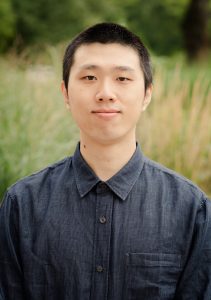
Assistant Professor Brian Yuan, Applied Computing and Computer Science, has a Ph.D. in computer science from University of Florida. His areas of expertise include machine learning, security and privacy, and cloud computing. Yuan is a member of the ICC’s Center for Cybersecurity and Center for Data Sciences.

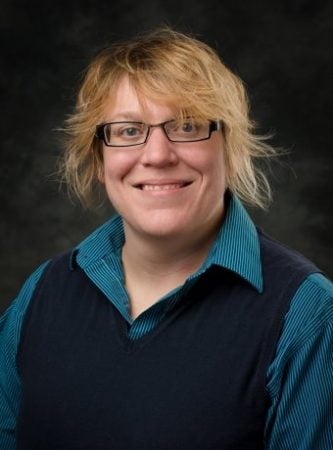
Kelly Steelman, interim department chair and associate professor, Cognitive and Learning Sciences, presented her paper, “Work in Progress: Student Perception of Computer Programming Within Engineering Education: An Investigation of Attitudes, Beliefs, and Behaviors” at the 2020 ASEE Virtual Conference, June 22-26, 2020.
Co-authors of the paper are Michelle Jarvie-Eggart (EF), Kay Tislar (CLS), Charles Wallace (CC), Nathan Naser (GMES), Briana Bettin (CS) and Leo Ureel (CS), all from Michigan Tech.
Abstract
Although most engineering faculty and professionals view computer programming as an essential part of an undergraduate engineering curriculum, engineering students do not always share this viewpoint. In fact, engineering students—especially those outside of computer and electrical engineering—may not realize the value of computer programming skills until after they have graduated and advanced in their career (Sterian, Dunne, & Blauch, 2005). Failure to find value in computer programming may have negative consequences for learning. Indeed, engineering students who do not view programming as interesting or useful show poorer performance on tests of programming concepts than students who do (Lingar, Williams, and McCord, 2017). This finding is consistent with theories of technology acceptance (e.g., Davis, 1989, Venkatesh, et al., 2003) that emphasize perceived usefulness as a key determinant of attitudes toward a technology and subsequent use or disuse of it. Accordingly, to better support student learning, engineering coursework should include specific interventions that emphasize the utility of programming skills for a career in engineering. Intervention effectiveness, however, may depend in part on the characteristics of the individual learners, including their prior programming experience, their openness to new experiences, and their beliefs about the nature of intelligence. The purpose of the current work is to understand engineering students’ attitudes toward and experiences with computer programming as well as to assess the relationship between their attitudes and experiences and their mindset toward their own intelligence. 101 engineering students participated in the study as part of a general education psychology course. Participants completed a computer language inventory and three surveys. The first survey inquired about students’ computer programming experiences and attitudes (Hoegh and Moskal, 2009). The second survey posed questions related to different aspects of openness to experience (Woo et al., 2014): intellectual efficiency, ingenuity, curiosity, aesthetics, tolerance, and depth. Finally, the third survey probed participants’ beliefs about the nature of intelligence and whether it is fixed or can be developed (Dweck, 1999). This paper will present the results of these surveys and explore the correlations among the various scales. The implications for engineering education interventions will be discussed.
Download the paper here.
Citation
Steelman, K. S., & Jarvie-Eggart, M. E., & Tislar, K. L., & Wallace, C., & Manser, N. D., & Bettin, B. C., & Ureel, L. C. (2020, June), Work in Progress: Student Perception of Computer Programming within Engineering Education: An Investigation of Attitudes, Beliefs, and Behaviors Paper presented at 2020 ASEE Virtual Annual Conference Content Access, Virtual On line . https://peer.asee.org/35683